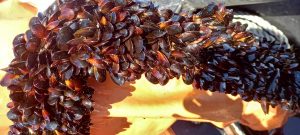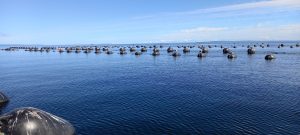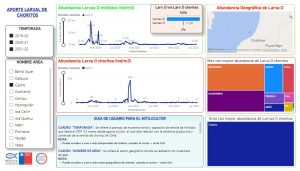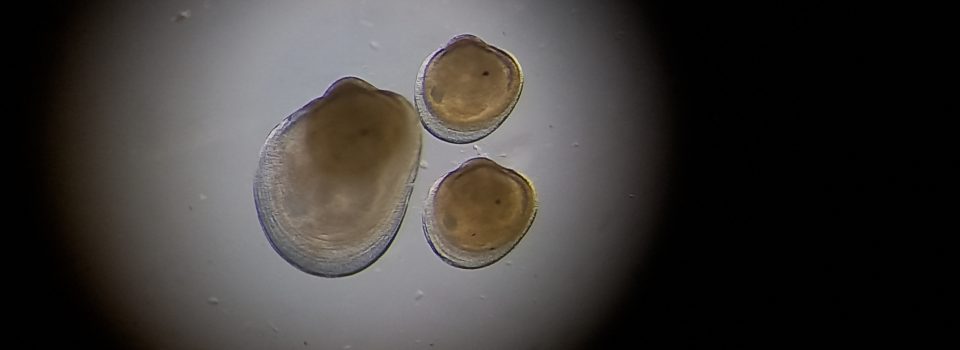IFOP will hold a monitoring larvae and collection of mytilid seeds workshop
October 24th, 2022Access link: https://meet.google.com/hcd-vawa-fbw
 On Monday, September 26th, between 9:30 a.m. and 12:30 p.m., Fisheries Development Institute (IFOP), will hold a workshop to disseminate “Monitoring and Surveillance Program on the larval availability of mussels for the sustainability of the aquaculture activity in the southern southern zone of Chile, IX stage 2021-22”results, a study that has been carried out since 2013 and is part of the permanent monitoring programs carried out by IFOP and defined by Fisheries and Aquaculture Undersecretariat.
On Monday, September 26th, between 9:30 a.m. and 12:30 p.m., Fisheries Development Institute (IFOP), will hold a workshop to disseminate “Monitoring and Surveillance Program on the larval availability of mussels for the sustainability of the aquaculture activity in the southern southern zone of Chile, IX stage 2021-22”results, a study that has been carried out since 2013 and is part of the permanent monitoring programs carried out by IFOP and defined by Fisheries and Aquaculture Undersecretariat.
 In the workshop, IFOP professionals associated with the monitoring program, will offer presentations focused on describing mussels seeds collecting activity , from mussel farmers point of view, as well as larvae and seed shedding monitoring capture and efficiency can be indicators for the industry. In addition, they will present abundance of larvae in the inland sea of the X Los Lagos Region’s results, with special emphasis on the last season. And at the workshop’s end, a new online reporting system that will make it easier to understand what is happening at the moment for decision-making associated with seed collection will be shown .
In the workshop, IFOP professionals associated with the monitoring program, will offer presentations focused on describing mussels seeds collecting activity , from mussel farmers point of view, as well as larvae and seed shedding monitoring capture and efficiency can be indicators for the industry. In addition, they will present abundance of larvae in the inland sea of the X Los Lagos Region’s results, with special emphasis on the last season. And at the workshop’s end, a new online reporting system that will make it easier to understand what is happening at the moment for decision-making associated with seed collection will be shown .
 Mytiliculture and seed collection
Mytiliculture and seed collection
Mussel farming is the second most important aquaculture activity at the national level (420 thousand tons, 2021), Chile is currently the main exporter of mussels worldwide (100 thousand tons, 2021). This industry is developed mainly in Los Lagos region, and depends entirely on larvae of the mussel or Chilean mussel (Mytilus chilensis) collection from the natural environment, through the activity known as seed collection. Historically, this activity has evidenced various territorial events of good/bad seed collection. Given the lack of information necessary to understand a key natural process for mussel farming sustainability, the Undersecretary of Fisheries and Aquaculture asked Fisheries Development Institute to develop a monitoring program that would allow monitoring, describing and, ideally, understanding natural variations in mytilid larvae abundance, both in areas where seed collection is carried out and in areas where it is not, within the Los Lagos, Aysén and Magallanes regions. The creation of this monitoring program seeks that the authority and the mussel farming sector have timely information on the variability in the availability of mussel larvae for seed collection and identify new potential areas where to develop the activity. Since its implementation in 2013, the monitoring program has operated uninterruptedly and is projected as a permanent activity for the generation of base knowledge that contributes to the sustainability of the seed collection activity and, therefore, to the national mussel farming industry.
For more information about the activity, write to cristian.segura@ifop.cl .
Workshop Program (spanish Version)
Press related links:
